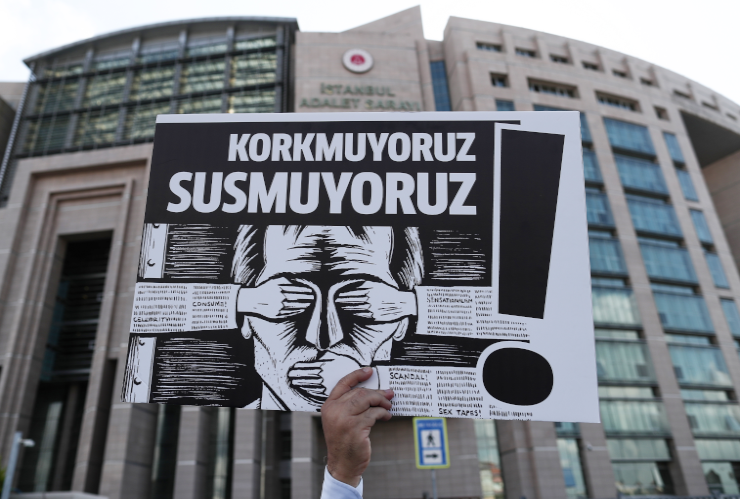Freedom of press is one of the main requirements of a democratic society. As the public watchdog, the press greatly contributes to public debate and ensures accountability by imparting information about the actions and statements of those in power.
Yet despite this crucial role, there is a rising trend of heavy interference in the freedom of press by both the state and private actors around the world. Turkey is a leading example of the trend of democratic countries where press freedom faces such attacks and interference. This interference takes numerous forms and methods, including criminal investigations and prosecutions, compensation claims, broadcast and advertising bans, seizure of publications, orders to disclose sources, and the revocation of licenses or press cards. Although in many cases it is obvious that such interferences are clearly unfounded and used for repressive purposes, they often hide behind a legal façade that masks the true intentions of the intrusion. This mask is mostly composed of sloppy indictments with no concrete basis or reasoning, and arbitrary and abusive prosecution in courts. But despite the effort, the mask usually cannot hide the true repressive intentions from the public eye.
Read full analysis